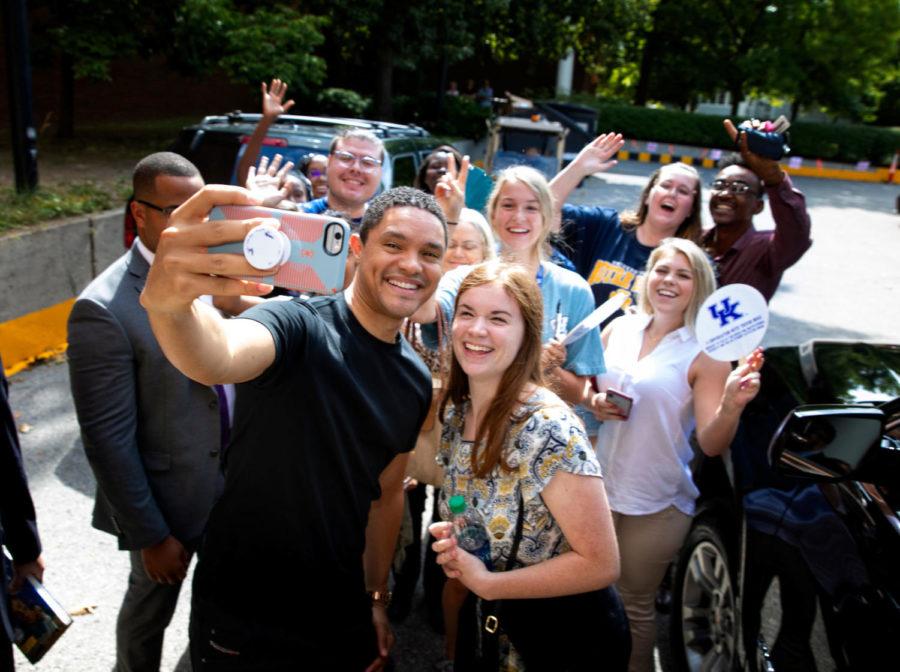Trevor Noah’s spot-on advice for UK academics
Trevor Noah shot a selfie with some students outside the Singletary Center for the Arts after his presentation on campus on Friday August 30, 2019. Photo by Mark Cornelison | UKphoto
September 4, 2019
UK recently welcomed Trevor Noah, comedian, author and host of “The Daily Show,” to campus to commemorate 70 years of integration at UK. In a question and answer session, Noah drew upon his own experiences to eloquently comment on the role that higher education has to play in furthering an inclusive, diverse society.
His answer to one question in particular stood out to me: “How should academics and students add to and inform this national conversation about race and social justice?”
Noah began his answer by repeatedly stating his appreciation for academics and how they “take the time to break down very complex ideas or conduct studies that give a deeper insight into the ‘why.’”
He also stated, however, that he sees an “extreme shortcoming” in academic circles when it comes communicating in language that lay-people understand.
“What good is it to write a thousand papers that have broken down the world if nobody is reading them and no one understands what you have said?” Noah questioned.
I found myself nodding, and the chatter and light laughter from the audience confirmed that they, too, resonate with this issue.
I know that there is so much exciting, groundbreaking research going on at this university, much of which involves themes of social justice. I also know, though, that researchers collectively put millions of grant dollars and hours, and often a large part of their soul, into their projects for often very few “reads.” Outside of our respective degree programs, university list-servs, and access-restricted journals, where is this research? More importantly, where is it couched in a way that people in other disciplines can understand?
I think it’s a travesty that professors and students at this institution and across the world spend so much time and effort in, as Noah calls it, “[breaking] down the world” if there are very few outside of their own circles who ever get to read, understand and benefit from that knowledge.
It’s not just a pity to keep the findings of research quiet or in language that most people don’t understand – it’s dangerous. “If you’re not careful,” said Noah, “the academic space stays in that space of the elites, whereas populists […] are very good at using language that communicates and connects with people who feel like they’ve been left behind by academics and elites.”
He went on to assert that many harmful messages make such an impact not because they’re true or better, but rather “because they’re a message that’s easier to understand.”
How can we stop preaching to the choir in our respective disciplines?
In my opinion this is one of the most important questions for any research institution to address. I don’t have any clear-cut answers, but more intentional collaboration between the science and communication disciplines may be a good place to start (kudos to the professors already paving the way in this area at UK).
Individually, whether as an experienced researcher or undergraduate, we can resolve to find ways of communicating research better.
Why not make UK a university which leads the way in making research more widely accessible, understandable and appealing to people in all disciplines and walks of life?































































































































































